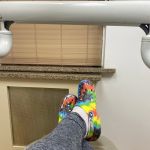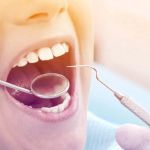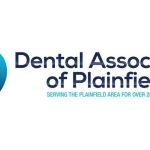Can Cavities Heal on Their Own with Proper Care?
- 1. Understanding Cavities and Their Causes
- 2. Can Cavities Heal on Their Own?
- 3. Steps to Repair and Prevent Cavities
- 4. The Importance of Regular Dental Care
- 5. Exploring Dental Products for Better Oral Health
1. Understanding Cavities and Their Causes
Cavities are one of the most common dental issues people face, but many may not fully understand how they form or how they can be prevented. Cavities are areas of decay that form on the teeth when bacteria feed on sugars and starches left on the teeth. These bacteria produce acids that erode the enamel, leading to small holes or cavities. Poor oral hygiene, sugary diets, and lack of regular dental care are primary contributors to cavity development.
2. Can Cavities Heal on Their Own?
The question that often arises is, “Can cavities heal on their own with proper care?” The short answer is no—once a cavity has formed, it cannot heal completely by itself. However, early-stage tooth decay can be reversed with proper care, before a full-fledged cavity develops. This early stage is called demineralization, where the enamel softens due to acid exposure but hasn’t yet formed a cavity.
If caught early, regular use of fluoride toothpaste and reducing sugar intake can help remineralize the enamel and prevent further damage. While this may sound like healing, it's more of a reversal of early damage rather than true healing. Once a cavity has reached a certain stage, professional treatment is required to stop the progression of decay and restore the tooth.
3. Steps to Repair and Prevent Cavities
While cavities themselves can't heal on their own, there are steps you can take to minimize the risk of further damage and possibly reverse early-stage decay:
- Use Fluoride: Fluoride helps to strengthen enamel and can aid in remineralizing early-stage decay. It’s a key player in cavity prevention and repair.
- Brush and Floss Regularly: Brushing twice a day and flossing once daily helps remove plaque and food particles, preventing bacteria buildup that leads to cavities.
- Limit Sugary Foods: Cutting back on sugary snacks and drinks can significantly reduce the risk of cavities, as bacteria thrive on sugar.
- Visit the Dentist Regularly: Regular dental checkups are essential for detecting cavities in their early stages and addressing any concerns before they become serious.
4. The Importance of Regular Dental Care
One of the best ways to prevent cavities is through diligent oral care and regular dental visits. Dentists can detect cavities early, often before you can notice any symptoms. They also provide valuable advice on maintaining good oral health, which is crucial for avoiding costly treatments down the line.
For those who already have cavities, a dentist can recommend the best treatment options, including fillings, crowns, or root canals, depending on the severity of the damage. Early intervention is key to preserving your natural teeth and maintaining your overall health.
5. Exploring Dental Products for Better Oral Health
If you're looking to improve your oral health and prevent cavities, it's essential to invest in high-quality dental products. Products such as fluoride toothpaste, antimicrobial mouthwash, and electric toothbrushes can enhance your daily care routine and provide added protection against decay.
In addition, many dental products are now formulated with ingredients that help remineralize enamel and prevent cavities from forming. Consulting with your dentist about the best products for your specific needs is a great way to tailor your oral health regimen.







 W Michael Tuman, D.M.D.4.0 (601 review)
W Michael Tuman, D.M.D.4.0 (601 review) Ideal Smile Dental - Bensalem4.0 (602 review)
Ideal Smile Dental - Bensalem4.0 (602 review) Cary Dental Rejuvenation4.0 (473 review)
Cary Dental Rejuvenation4.0 (473 review) Kelly Orthodontics5.0 (14 review)
Kelly Orthodontics5.0 (14 review) Familia Dental4.0 (458 review)
Familia Dental4.0 (458 review) Dental Associates of Plainfield4.0 (100 review)
Dental Associates of Plainfield4.0 (100 review) The Importance of Oral Health Education During Pregnancy for a Healthy Pregnancy
The Importance of Oral Health Education During Pregnancy for a Healthy Pregnancy Best Tips for Brushing Your Teeth Properly for Healthy Gums: Essential Techniques for Oral Health
Best Tips for Brushing Your Teeth Properly for Healthy Gums: Essential Techniques for Oral Health Why Skipping Dental Checkups Can Lead to Bigger Oral Health Problems
Why Skipping Dental Checkups Can Lead to Bigger Oral Health Problems Advantages of Porcelain Dental Restorations
Advantages of Porcelain Dental Restorations How Can Diabetes Cause Tooth and Gum Problems? Preventing and Managing Oral Health Issues
How Can Diabetes Cause Tooth and Gum Problems? Preventing and Managing Oral Health Issues Healthy Habits for Promoting Good Oral Health and Hygiene: Tips for a Healthy Smile
Healthy Habits for Promoting Good Oral Health and Hygiene: Tips for a Healthy Smile